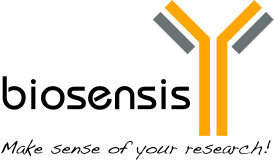Dystrophin, Mouse Monoclonal Antibody
As low as
US$427.00
Only %1 left
Catalog Number
M-1833
- Product Name Dystrophin, Mouse Monoclonal Antibody
- Product Description Mouse anti-Dystrophin Monoclonal Antibody (Unconjugated), suitable for WB, IHC-Frozen.
- Alternative Names DMD
- Application(s) IHC-Frozen, WB
- Antibody Host Mouse
- Antibody Type Monoclonal
- Specificity The specificity of this antibody has been confirmed by WB and IHC against human samples.
- Species Reactivity Chicken, Human, Mouse, Rabbit, Rat
- Immunogen Description Recombinant human dystrophin encoding amino-acids 816-1749
- Conjugate Unconjugated
- Purity Description Ascites fluid
- Regulatory Status For research use only.
Product Info
- Product Description Mouse anti-Dystrophin Monoclonal Antibody (Unconjugated), suitable for WB, IHC-Frozen.
- Application(s) IHC-Frozen, WB
- Application Details Immunohistochemistry (IHC) and Western Blotting (WB). A 1:200-1:1:000 is recommended for WB. Human dystrophin has a predicted length of 3,685 residues and MW of 427 kDa. A concentration of 1:200-1:6000 (ABC detection) is recommended to detect dystrophin fresh frozen, or acetone fixed, 2% PLP fixed sections so far tested. Not recommended for paraffin embedded tissues. Immunolocalization: Stains muscle membranes (no staining of Duchenne muscle membrane). Biosensis recommends optimal dilutions/concentrations should be determined by the end user.
- Target Dystrophin
- Specificity The specificity of this antibody has been confirmed by WB and IHC against human samples.
- Target Host Species Human
- Species Reactivity Chicken, Human, Mouse, Rabbit, Rat
- Antibody Host Mouse
- Antibody Type Monoclonal
- Antibody Isotype IgG2b
- Clone Name 8H11/MANDYS8
- Conjugate Unconjugated
- Immunogen Description Recombinant human dystrophin encoding amino-acids 816-1749
- Purity Description Ascites fluid
- Format Lyophilized from 1.2% sodium acetate, 2 mg BSA, 0.01 mg NaN3
- Reconstitution Instructions Spin vial briefly before opening. Reconstitute in 1 mL of sterile-filtered PBS (pH 7.4) to achieve an antibody concentration of 100 µg/mL. Centrifuge to remove any insoluble material.
- Storage Instructions Store lyophilized antibody at 2-8°C. After reconstitution divide into aliquots and store at -20°C for up to six months. Store at 2-8°C short-term (up to 4 weeks). Avoid repetitive freeze/thaw cycles.
- Batch Number Please see item label.
- Expiration Date 12 months after date of receipt (unopened vial).
- Alternative Names DMD
- Uniprot Number P11532
- Uniprot Number/Name P11532 (DMD_HUMAN)
-
Scientific Background
Anchors the extracellular matrix to the cytoskeleton via F-actin. Ligand for dystroglycan. Component of the dystrophin-associated glycoprotein complex which accumulates at the neuromuscular junction (NMJ) and at a variety of synapses in the peripheral and central nervous systems and has a structural function in stabilizing the sarcolemma. Also implicated in signaling events and synaptic transmission.
In muscle cells, sarcolemma localization requires the presence of ANK2, while localization to costameres requires the presence of ANK3. Localizes to neuromuscular junctions (NMJs). In adult muscle, NMJ localization depends upon ANK2 presence, but not in newborn animals.
Involvement in disease: Duchenne muscular dystrophy (DMD) 6 Publications
The disease is caused by mutations affecting the gene represented in this entry.
Disease description: Most common form of muscular dystrophy; a sex-linked recessive disorder. It typically presents in boys aged 3 to 7 year as proximal muscle weakness causing waddling gait, toe-walking, lordosis, frequent falls, and difficulty in standing up and climbing up stairs. The pelvic girdle is affected first, then the shoulder girdle. Progression is steady and most patients are confined to a wheelchair by age of 10 or 12. Flexion contractures and scoliosis ultimately occur. About 50% of patients have a lower IQ than their genetic expectations would suggest. There is no treatment. Source: https://www.uniprot.org/uniprot/P11532 - Shipping Temperature 25°C (ambient)
- UNSPSC CODE 41116161
- Regulatory Status For research use only.
Specifications
-
General References
Nguyen Thi Man, A.J. Cartwright, G.E. Morris, D. Love, J.F. Bloomfield and K.E. Davies. Monoclonal antibodies against defined regions of the muscular dystrophy protein, dystrophin. FEBS Letters, 262 (1990) 237-240.
Nguyen Thi Man and G.E. Morris. Use of epitope libraries to identify exon-specific monoclonal antibodies for characterization of altered dystrophins in muscular dystrophy. American J.Human Genetics, 52 (1993) 1057-1066.

 1800 605-5127
1800 605-5127 +61 (0)8 8352 7711
+61 (0)8 8352 7711

